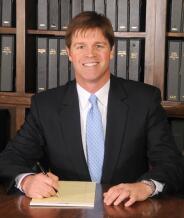In this episode of Let's Talk Legal, Cecil Harvell and Wes Collins discussed the complexities of contesting wills and trusts, emphasizing the three-year statute of limitations for filing a will caveat and the importance of acting promptly to preserve evidence and witnesses. They highlighted the stringent legal requirements for contesting a will, including proving lack of capacity or undue influence, the mandatory freezing of the estate upon filing a caveat, and the necessity of a jury trial. The discussion also covered procedural aspects of reopening closed estates for contest purposes, the high costs involved, and the potential for mediation before reaching a jury trial.
Time Limits on Contesting a Will
-
The statute of limitations for contesting a will (filing a caveat) is three years from when the will is admitted to probate and letters testamentary are issued, not six months as initially misstated. Exceptions exist if a new will is discovered after this period. [07:28]
-
Recommendations stress not waiting until the last moment near the three-year deadline to begin contesting due to risks like fading memories and lost evidence. [13:20]
Estate Administration Timeline
-
There is no strict deadline for closing an estate. Executors must file annual accountings if the estate remains open beyond one year, explaining delays to the court. Some estates remain open for several years depending on circumstances. [14:53]
Filing a Caveat and Estate Freezing
-
Filing a caveat immediately freezes the estate, preventing distribution of assets without court order to protect the contested inheritance. This is a statutory procedure initiated without prior notice to the executor or beneficiaries to avoid asset dissipation. [16:52]
Criteria for Will Contest Consideration
-
Contesting a will requires more than disagreement; the attorneys evaluate factors such as the testator’s mental capacity, presence of undue influence, consistency with prior estate plans, timing of the will’s execution, and authenticity of formalities like witnesses. [18:00]
-
Hard questions about medical status, caregiving, and circumstances surrounding the will signing are asked to determine the validity and likelihood of success. [18:40]
Legal Process for Contesting a Will
-
A will contest case proceeds as a jury trial by statute; the clerk of court transfers the caveat case to Superior Court where litigation follows including motions, discovery, and possible settlement or trial. [25:00]
-
Evidence gathering involves medical records, banking and social service reports, witness interviews, and other depositions to build the case about capacity and undue influence. [27:15]
Jury Considerations and Issues Presented
-
The jury determines if the testator had capacity at the time of the will’s signing and if undue influence was exerted; the jury does not decide on the testator’s desires or intentions beyond legal capacity and influence issues. [28:30]
-
Multiple wills are considered in one caveat proceeding; the court determines which will is valid based on evidence. [31:30]
Challenges in Contesting Multiple Wills
-
When multiple wills exist close in time, it is necessary to evaluate each for capacity and consistency. Sudden changes in beneficiary designations shortly before death often warrant scrutiny. [29:00][32:30]
Reopening a Closed Estate
-
If the estate has been closed, the attorneys notify the executor to reopen it for the contest. If the executor does not act, the court can be petitioned to reopen and appoint an administrator CTA to manage the estate for the contest. [33:54]
Costs and Duration
-
Will contests are expensive and time-consuming due to the complexity of gathering evidence and the litigation process. Despite the challenge, mediation is mandatory in North Carolina, allowing for resolution to avoid trial. [25:48][38:03]
Commonality of Will Contests
-
These types of cases are frequent in the firm’s trust and estate practice. Most go through substantial litigation phases, but many settle after discovery or mediation. [37:35]
Practical Insights
-
Family disputes often arise when an expected beneficiary is excluded, or property allocations change unexpectedly without documented rationale. These facts serve as initial grounds to explore potential contest cases. [30:00]
-
Interested parties should consult attorneys promptly upon learning of potential issues, to preserve evidence and meet deadlines. [12:30]


